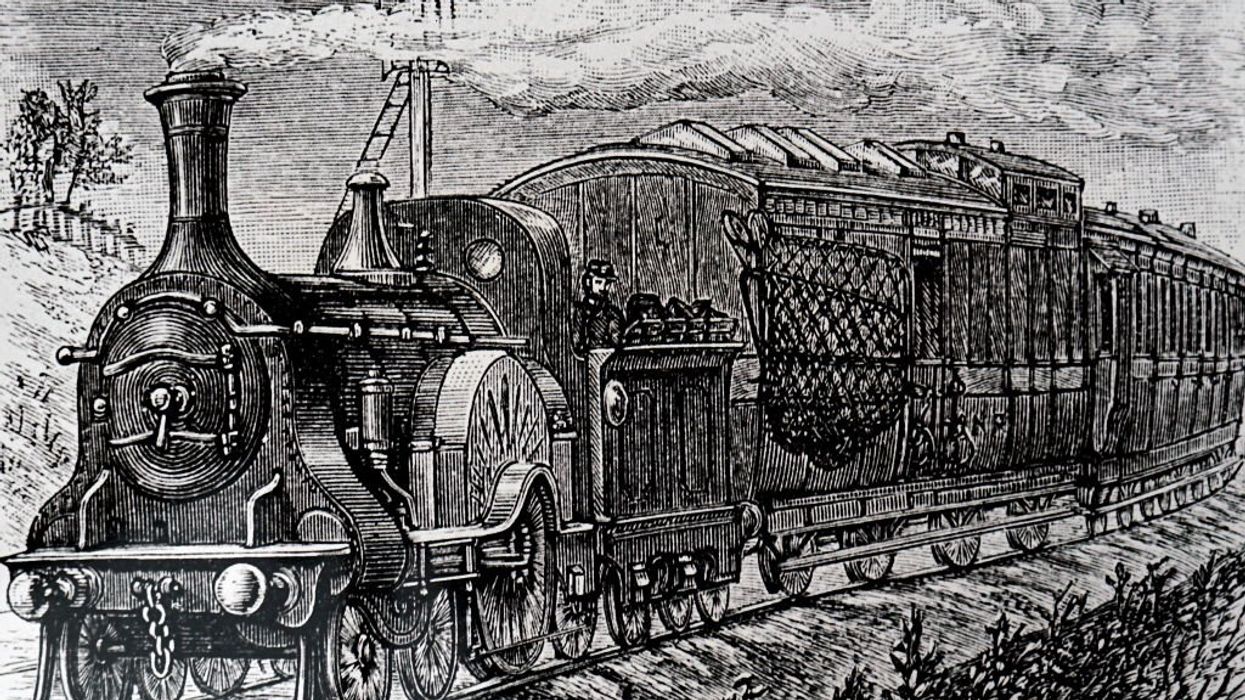Last Monday, the Federal Reserve began its latest round of "quantitative easing," through which "at least" $700 billion will be pumped into the U.S. economy in the hopes of limiting the economic damage imposed by the spreading coronavirus.
And that's just the beginning. The Fed also lowered interest rates down to 0, and it has already signaled it could expand these efforts in the months to come.
Further, the White House and much of Congress is frothing at the mouth to impose a new "stimulus" package that could end up costing $1 trillion. (Yes, you read that correctly. That's "trillion" with a "t.")
America's monetary system is ridiculously complex, to say the least. Trying to understand every action by the Fed is sort of like attempting to solve a Rubik's Cube while blindfolded. And drunk. And underwater.
But don't worry about drowning to death. The idea behind quantitative easing is simpler than it appears at first glance.
In times of an economic crisis – you know, like when a killer virus from China sweeps across the world – regular folks like you and me get really worried and start saving our money in anticipation of future economic problems. Investors, corporations, and just about everyone else also become terrified, and start preparing for tough economic times, slowing or even reversing economic growth.
In an effort to get America's economic engine roaring again, the Fed, the central bank for the United States, effectively creates money out of thin air and uses that "cash" – which is really just numbers on an electronic spreadsheet – to buy assets so that more money finds its way into the hands of bankers, investors, and maybe even eventually average Joe's like you and me.
The Fed believes that if people have more money, they'll spend it, and we'll all be better off as a result.
The Fed believes that if people have more money, they'll spend it, and we'll all be better off as a result.
If this sounds way too good to be true, that's because it often is. Inventing money purely for the purpose of incentivizing bankers, investors, and consumers to spend cash when they know it's probably not a good idea to do so creates all sorts of negative repercussions and eventually causes more economic crises. (If you're looking for a good example of a Fed-inspired economic crash, look no further than the 2008 financial crisis.)
Introducing trillions of new dollars into the economy can also create inflation, devaluing dollars and encouraging consumers to spend as quickly as possible, rather than save, introducing lots of additional economic distortions.
That doesn't mean there aren't extremely rare times when reasonable people might think such policies make sense. Heck, I'm not even trying convince you that this particular crisis doesn't justify action on the part of the government. All I'm hoping you'll get from this article is that these actions, coupled with the frivolous monetary policies utilized by the Fed over the past two decades, pose substantial risks – not only to our economy, but to our freedom.
This article isn't really about quantitative easing or the absurdities present throughout the U.S. monetary system. It's about socialism. Because as difficult as it might be for some to believe, if we continue down this road of printing a seemingly endless amount of cash to solve all our problems, socialism is exactly where we're going to end up – a reality Glenn Beck expertly explains in his newest book, Arguing with Socialists, which will be available everywhere books are sold on April 7.
As Glenn notes, whatever the intentions are of the folks running the Fed, one of the primary effects of their decision to pump trillions of dollars into the economy is that it gives significantly more power to the national government.
The U.S. federal government is broke – and when I say "broke," I mean living in the dumpster behind the Chinese food restaurant broke. At last count, the federal government is already $23 trillion in the hole. It doesn't have any money to buy toilet paper for government buildings, never mind enough to spend tens of billions of dollars to bail out airlines.
So, how does Congress do it, then? The simple answer is that the federal government steals – eh, I mean taxes – trillions of dollars from hardworking Americans and then fills in the rest by issuing bonds that the Federal Reserve happily buys with the money it prints, money that is backed by nothing more than the "full faith and credit" of the very same government issuing the bonds in the first place. (Suddenly, Charles Ponzi doesn't look so bad, huh?)
The federal government then burns through the cash by expanding and adding government programs – including stimulus packages – it can't afford. This cycle repeats year after year after year, allowing the government to get progressively bigger and more powerful.
As we all know from personal experience, the government doesn't fly over every state dropping bucketloads of the cash it gets from the Fed out of helicopters. It selectively chooses who is worthy of receiving money and who isn't. Or, as conservatives have often said, it "picks winners and losers" by favoring some groups, corporations, industries, and ideas over all others.
When the federal government is small, the problems this crony system can cause are relatively limited. But as the government expands significantly, which has only been made possible thanks to the Federal Reserve, it ends up consuming whole industries and gigantic portions of the economy and society. (Note that without the Fed inventing money, single-payer health care would be completely impossible to achieve absent other significant cuts to government spending.)
As the government expands significantly... it ends up consuming whole industries and gigantic portions of the economy and society.
A country with a conservative central bank could theoretically ensure its nation's government is acting responsibly, but America's central bank has proven that it's anything but conservative. In fact, it seems hellbent on ensuring that the power of the Federal Reserve and the federal government is expanded significantly.
As Ron Paul noted recently, "Boston Federal Reserve President Eric Rosengren has suggested that Congress allow the Federal Reserve to add assets of private companies to the Fed's already large balance sheet," a move that would give the Fed direct control over the economy.
Another way the Fed moves America closer to collectivism is by socializing the cost of money and savings. When the Fed introduces trillions of new dollars into an economy to spur demand, rather than as a reaction to market forces, it devalues everyone's currency, discouraging people from saving.
And the mere ability of the Fed to manipulate the currency whenever it pleases is in and of itself a form of socialism, because it ultimately gives the Fed's Board of Governors (a government agency) huge amounts of power over the entire economy, including setting the price of just about everything indirectly.
If we continue down this dangerous path, it's only a matter of time before we have full-blown socialism in the United States, especially since it seems unavoidable that crises like the one we're facing today will continue to be used as a justification for further power-grabs. (Just imagine how many trillions of dollars a Democratic president in the White House would say are "desperately needed" to stop climate change from wiping out humanity!)
This all might sound like a tin-foil-hat conspiracy, but it's not. As Glenn explains in detail in Arguing with Socialists, many of the nation's leading progressives and democratic socialists are big supporters of a fringe economic idea called Modern Monetary Theory, which directly calls for the Fed to print whatever amount of money the national government needs to control the economy. Debt and deficits don't really matter, they claim.
This theory has been fully adopted by politicians like Bernie Sanders, who made Stephanie Kelton, one of the world's leading MMT theorists, the chief economist for the Democratic members of the U.S. Senate Budget Committee. Sanders also named Kelton a senior economic adviser to both his 2016 and 2020 presidential campaigns.
This is what twenty-first century socialism looks like. The national government isn't going to go door to door confiscating homes and businesses and throwing people into gulags – well, at least not at first. It's much easier to have a central bank like the Fed control the currency and bankroll a national government's takeover of the economy through a never-ending stream of new government initiatives, bailouts, and massive services.
Justin Haskins is editorial director of The Heartland Institute and the editor-in-chief of StoppingSocialism.com.
To learn more about this topic, and just about any other related to socialism, be a good capitalist and pre-order Glenn Beck's Arguing with Socialists today.

 Christopher Furlong / Staff | Getty Images
Christopher Furlong / Staff | Getty Images
 Universal History Archive / Contributor | Getty Images
Universal History Archive / Contributor | Getty Images Fabrizio Villa / Stringer | Getty Images
Fabrizio Villa / Stringer | Getty Images